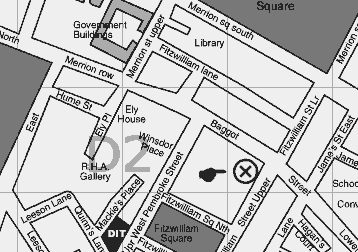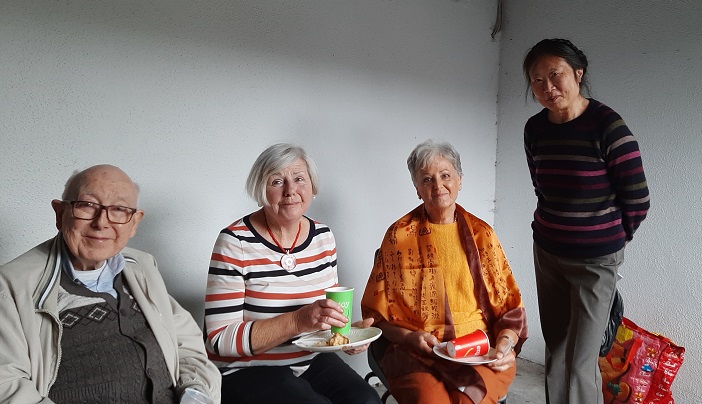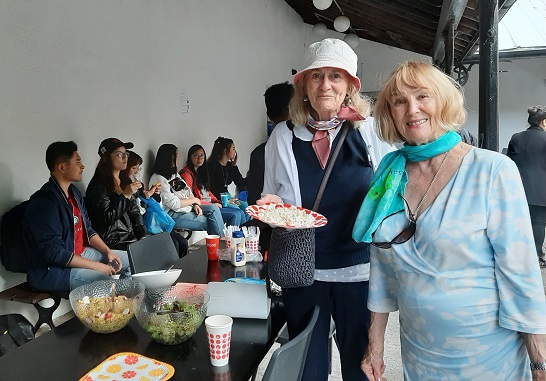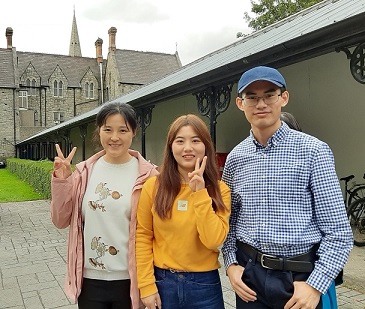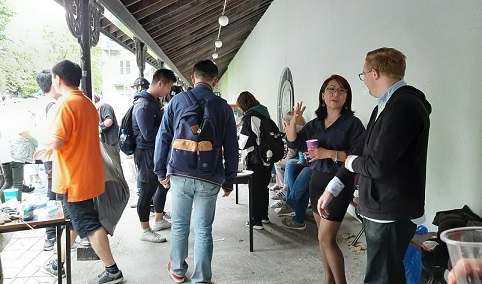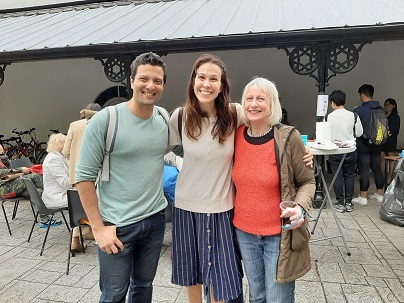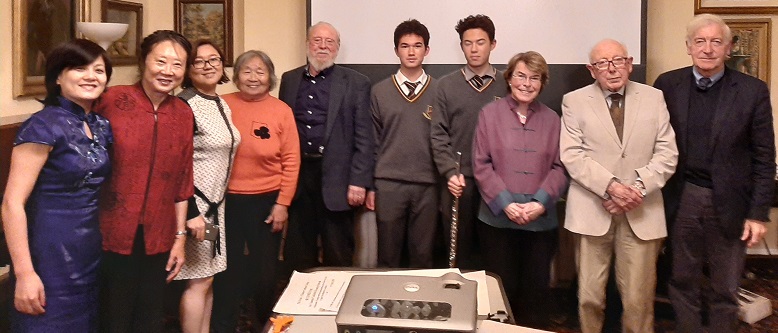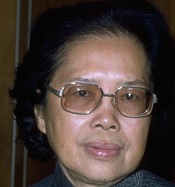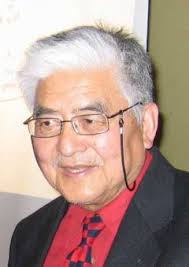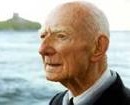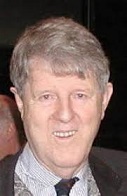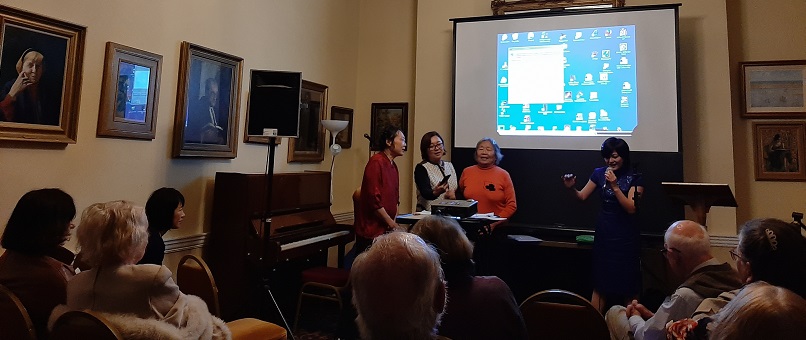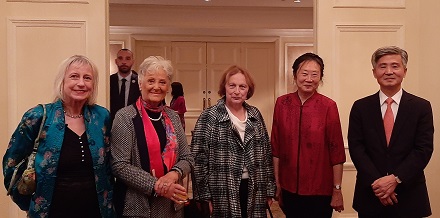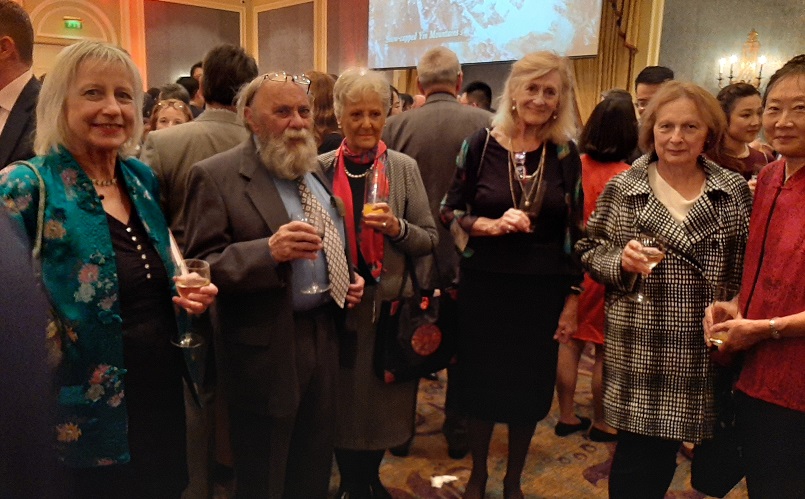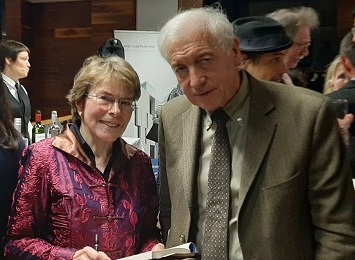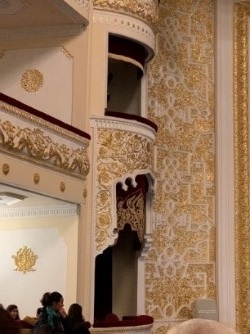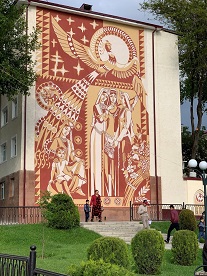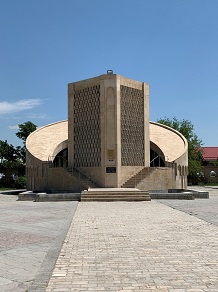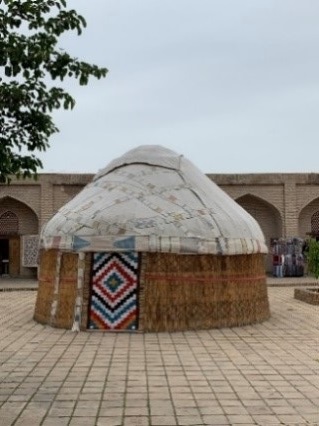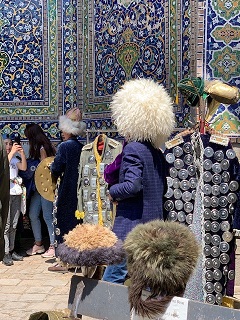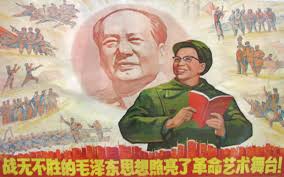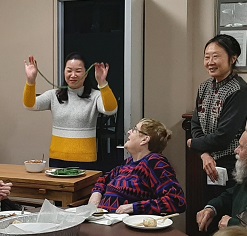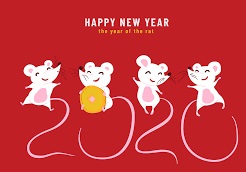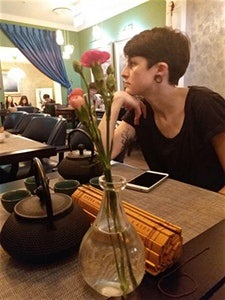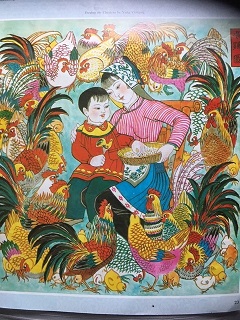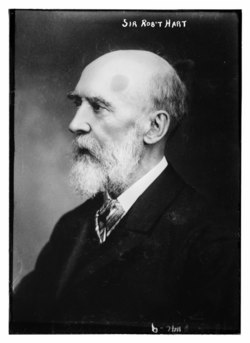David Judge told us about his
time as President of the I.C.C.S. Mention of
Sneem reminded him of the stone featuring De
Gaulle’s tribute to the the town promptly
labelled locally as ‘The Gall Stone’. Alongside
his personal reminiscences, David sketched out
for us the shape of relations between Ireland
and China prior to diplomatic relations being
formally established. Although the Irish state
had been slow to recognise the newly established
People’s Republic of China, nevertheless our
Minister for External Affairs, Frank Aiken, was
a strong advocate for China to be admitted into
the UN in the teeth of oppoosition from the
powerful forces of the United States Government
and the Catholic Church, in the shape of the
redoubtable Cardinal Spellman.
A few highlights from the overview David gave us
of the development of the I.C.C.S. include the
inaugural meeting of the Society in Buswell’s
Hotel on 3rd May 1975, the hosting of Prof. Jin
Di who has translated Ulysses into Chinese and
the Youxie visit in 2006 which required a joint
effort with the Ireland China Business
Association to manage successfully.
The evening was rounded off by Jerusha and
John’s talk on W.B.Yeats’ poem Lapis Lazuli
which offered us an insight into the influence
of Chinese philosophy on Ireland’s Nobel Prize
winning poet from a previous generation(Heaney
won it in 2005). To access the full text of this
discourse on the nature of time, art and human
destiny, made compelling by its blend of
insight, erudition and some Sherlock Holmes-like
persistence in unlocking the secrets of the
Lapis Lazuli sculpture which inspired the poem,
you can follow the link
https://books.openedition.org/obp/1430?lang=en
4. 27th Sept. 70th Anniversary Celebration
of the Founding of the People’s Republic of
China in the Intercontinental Hotel.
5. 10th Oct. The Irish
and China –Encounters and Exchanges.
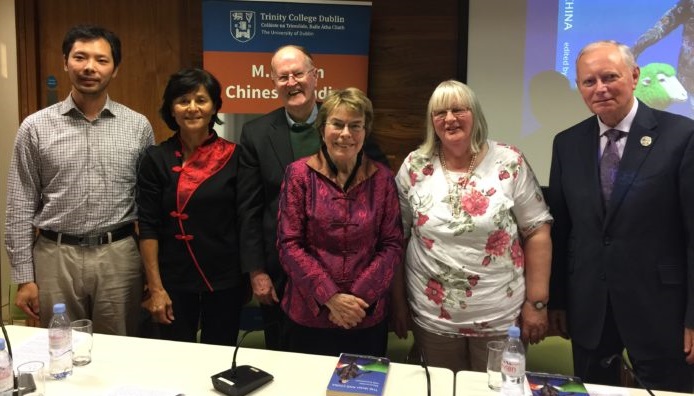
Pictured at the launch of
this new collection of essays on China and the
Irish (from l. to r.) are Lu Zhouxiang, Anna
Sophia Kiang, Fr. Hugh Mc Mahon, Prof. Jerusha
Mc Cormack, Assumpta Broomfield and Ken
Duggan.
A number of ICCS members were among a large
gathering in Trinity’s Long Room for the
launch of ‘The Irish and China’ which is
edited by Professor Jerusha McCormack,
Visiting Academic at the Asian Studies Centre
at Trinity College, Dublin with a foreword
written by President Michael D. Higgins.
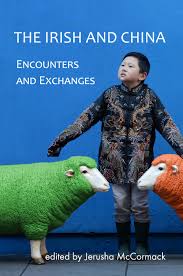
The book brings together a series of
stimulating essays highlighting a wide range
of Chinese-Irish connections, from literature
and science to philosophy, political activism
and food, amongst others. There are plenty of
connections too between the book and the Irish
Chinese Cultural Society as it contains
contributions from those with close
associations to the I.C.C.S. Apart from
Jerusha herself, Anna – Sophia Kiang spoke
about her father, Tao Kiang, who co-founded
the I.C.C.S. and the book also contains an
essay about doing business in China by Kieran
Fitzgerald who has spoken to us in the recent
past about his work in Jiuzhaigou National
Park in Sichuan Province. Hopefully, there are
a few future guest speakers to the I.C.C.S.
within the list of contributors to the
collection as well!
For anyone who wasn’t able to attend and pick
up a copy of ‘The Irish and China’ on the
night it is available for purchase in book
shops and through the New Island Books
website.
6. 23rd Oct. ‘Uzbekistan - Yesterday and
Today’, a talk by Daltún Ó’Ceallaigh
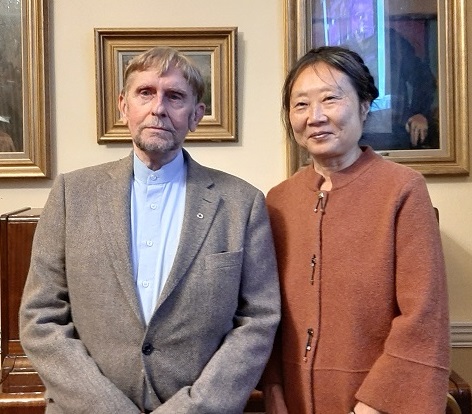
Daltún began his talk with a
fascinating potted history of the region east
of the Caspian Sea beginning with Scythia and
how various invading tribes changed the
borders, religion and rule over the centuries.
First the Uralic tribes descended from the
north and broke up the Sogdian empire, as it
transitioned through, Median,
Achaemenid/Persian, Alexandrian Empires and
the Umayyad Caliphate, up to the 8th century,
with each bringing their own philopsophies and
religions!
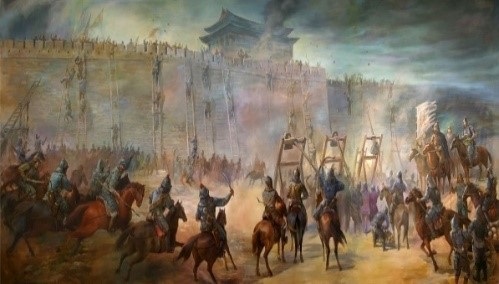
The Uzbeks gave Alexander
the Great huge amounts of difficulties, but
Zoroastrianism was eventually superseded by
the spread of Islam. The 13th Century was
dominated by the Mongols. On the death of
the Great Khan the Empire was broken up into
The Golden Horde, the White Horde, Chaghadai
Khanate and the Ilkhanate. Gradually the
region became more and more Turkiq in
nature, and these influences are still
apparent today.
Always a cultured city with beautifully
crafted buildings, Timor had, unusually,
been left with this tower(pictured on the
right) intact which bears out this
reputation.
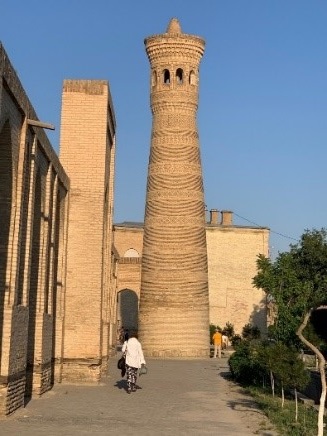
Although Tashkent is the
capital,it is in Samarkand that Tamerlane
is buried in a magnificent mausoleum, and
his memory is still revered. From 1533
Russian expansion began to take over the
region, even to the south of Afghanistan
as far as the Pamirs, overrunning
Uzbekistan around 1830. Russia
consolidated its empire in the 1920s, by
which time Uzbekistan was really one of
the Turkiq states including also
Turkmenistan, Khazakstan, Kyrgystan and
Tajikistan who form a close alliance.
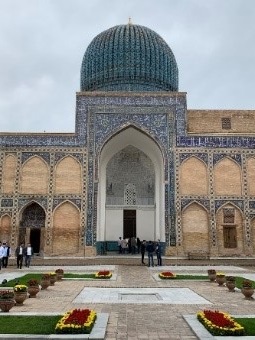
Uzbekistan became
independent from Russia in 1991, and
celebrates on the 1st of January each
year. The national flag has
representations of Islam (the crescent,
and the green) and Zoroastrianism (the
red and white bands), and the stars (a
perfect number, 12) symbolising vital
life force and energy (also signalling
the months of the year, the hours in
each half day…)
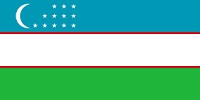
Daltún spent the rest
of his talk showing us images of the
most exquisite decorations on and
inside buildings; perhaps one of the
most atypical and most poignant is
that of the Opera House, pictured on
the right, where the love of opera and
ballet is a legacy from Russian days!
From the top:
a modern rendition of decorative work,
a modern museum reflecting Islam – the
crescent, and intricate decoration,a
yurt, a traditional nomadic peasant
herder dwelling and some fancy hats!
Deborah Wilson
7. 27th Nov. The
Yellow River Piano Concerto, a
talk by Denis Mullen
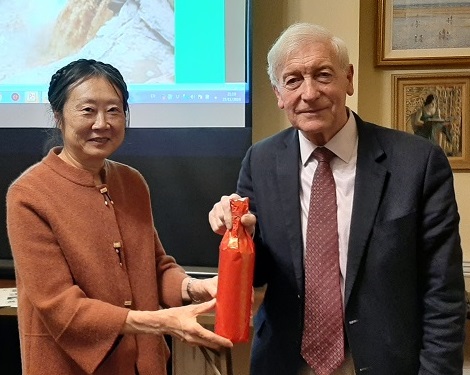
‘Everybody should
learn to play the piano.’ This quote
from Mao’s Little Red Book was
brought to Denis’ attention in
advance of his talk on the Yellow
River Piano Concerto. It is
certainly apt in relation to
Gulangyu Island, birthplace of Yin
Chengzhong, the pianist in the
original 1971 recording Denis played
for us, since the ‘Island of Pianos’
as it is known, boasts hundreds of
pianos on a land mass that is home
to a mere 20,000 inhabitants.
By way of
introduction Denis gave us a run
down on the history behind the
famous concerto which originated
in a poem written by Chinese
military leader Guang Weiran after
he witnessed the heroic spirit of
Chinese fisherman battling
tumultuous waves on the Yellow
River during the Japanese invasion
in 1939. A ripple effect of
inspiration ensued as the eminent
composer Xian Xiang whose
illustrious career Denis outlined
for us, was present for a reading
of the poem and was inspired to
write the Yellow River Cantata
which the aforementioned Yin
Chengzhong subsequently arranged
to become the Yellow River
Concerto that is widely performed
today.
This latter transformation, from
cantata to concerto, occurred in
the context of the Cultural
Revolution when all Western
influence in the arts was banned
and in order to make the cantata
palatable to the prevailing regime
Yin and others created a fresh
arrangement, one of the changes
being the inclusion of the hymn to
Mao and the Communist Party ‘The
East is Red’ in the final
movement.
Denis also played the Yellow River
Cantata and the Yellow River
Folksong Ballad to give us a
better sense of the work’s musical
origins and he mentioned a
particularly historic performance
of the concerto by the
Philadedelphia Orchestra in
Beijing in 1973 while the Cultural
Revolution was still in force.
Apparently there are hundreds of
piano rooms in the Beijing
Conservatory and all of them would
presumably have resonated to the
music of the Yellow River Concerto
over the years, as any Chinese
pianist worth their salt,
including the world-renowned Lang
Lang, plays it as part of their
repertoire.
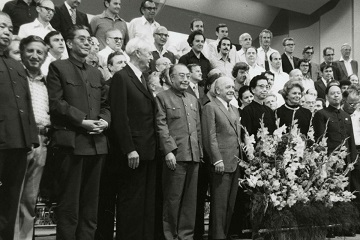
The
Philadephia Orchestra in Beijing
in 1973.
Paul Murray
8. 11th
Dec. Annual Foodfest
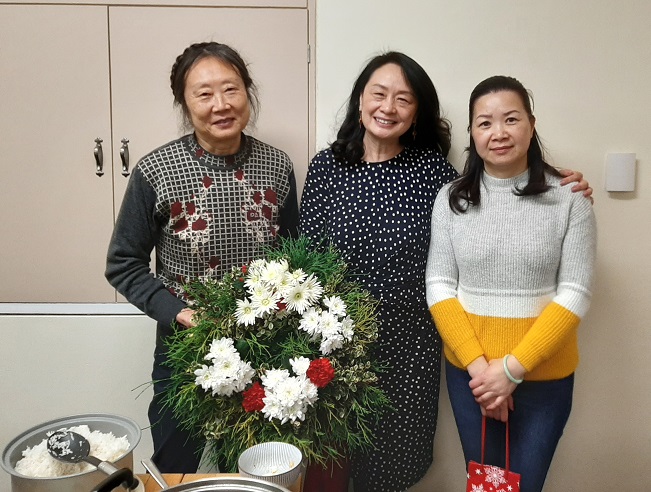
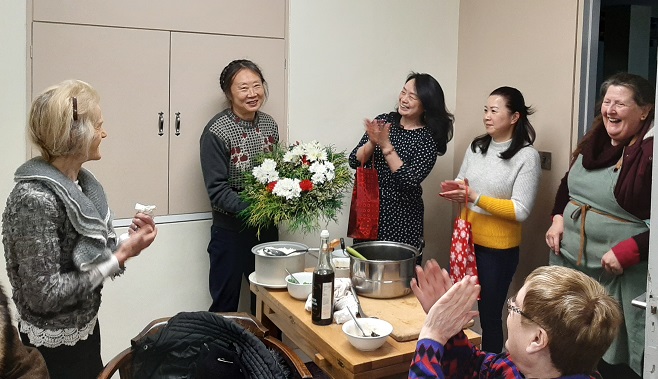
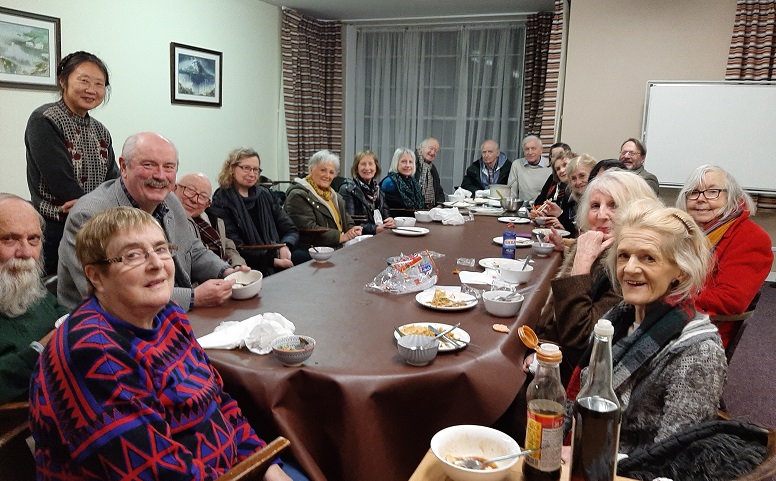
A very
enjoyable and relaxing
occasion for our annual
Foodfest in Wesley House when,
as ever, we got to sample some
tasty Chinese culinary
delicacies. There were some
lovely touches of culinary
artistry on show: noodle dough
being knocked into shape by
swinging it like a skipping
rope and the aptly named snake
beans twisted into nests for a
minced pork filling come to
mind. We also enjoyed
delicious meat and vegetable
dumplings and gorgeous tofu
with orange daylily and black
mushrooms. A seriously big
thank you to Shu Rong, Kim,
Yanyi and Debbie whose skill
and hard work made for such a
relaxed and enjoyable evening
for the rest of us.
9. ICCS Chinese New Year
Dinner, Monday 27th January,
2020
This year our New Year
Dinner will be in the Ka
Shing Chinese Restaurant on
Wicklow St. and the cost is
€40.00 per person.
Arrival at 7.00pm, with the
dinner starting promptly at
7.30pm. Please note: numbers
will be restricted, so early
purchasing of your tickets
is highly recommended.
(Booking form included as an
insert with this
newsletter.)
The menu is: Seafood Tofu
Soup/Sweet Corn and Mushroom
Soup First Course: Dim Sum:
Prawn Dumplings, Pork &
Prawn Dumplings, Vegetable
Spring Roll, Deep-fried Bean
Curd Rolls.
Main Course: Sea Bass Salt and
Chilli, Roast Duck
Cantonese-style, Wok-fried
Green Beans with Minced Pork,
Tofu in Egg Batter flavoured
with Dry Scallops, Thai-style
Prawn Cake with Chinese
Greens, Poached Sliced Beef in
Hot Chilli Broth,
Singapore-style Rice Noodles.
Dessert: Crispy Egg Tarts,
Chinese Tea.
There will be a full
vegetarian option so long as
it is specified on your
application.
10. 2020
Spring Programme
22nd January : A Chinese
Film .
27th
January : Chinese New
Year Dinner in the Ka
Shing Restaurant,
Wicklow St.
Please note that the
remainder of the
programme outlined below
has been deferred until
the Autumn as a result
of the Covid-19 crisis.
Members will be notified
in good time about any
revised arrangements.
26th
February – ‘The
art of Feng Zikai
in Republican Era
Shanghai.' a a
talk by Heather
Gray.(deferred
until a future
date)
25th
March – ‘Crafts of
China’ A talk by
Jenny
Slevin-Williams.
Jenny is an Artist and
Ceramic Conservator of
many years’
experience, and has a
great interest in hand
crafts. She will
present various images
of Chinese hand
crafts, accompanied by
a short description of
each of them.
22nd
April – ‘Robert Hart’
– A talk by Denis
Mullen.
‘An extraordinary
Victorian Irishman at the
centre of the Imperial
Chinese Customs Service in
the late Qing Dynasty’.
27th
May – A.G.M. followed
by ‘Show and Tell’.
Entrance fee: €5 (food provided)
Free entry for members to
talks. €5 charge for
non-members.
Email:
irishchineseculturalsociety@gmail.com
Website: www.ucd.ie/iccs
* * * * * * * * * *

